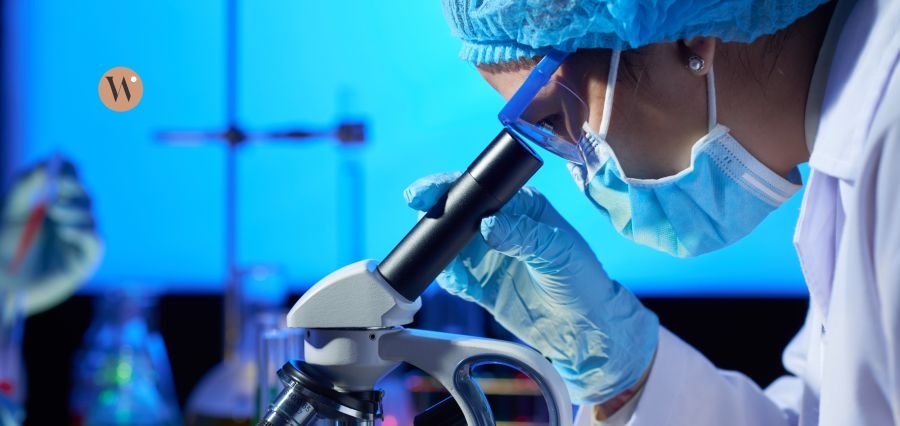Biotechnology is racing at light speed the global environmental scene of medicine, agriculture, energy, and the environment. The technology, a marriage of biology and technology, has come out of its infancy of experimentation with genetic engineering and drugs. Biotechnology now is a powerful engine of change with solutions to some of the world’s largest challenges within our grasp. From revolutionary therapies and tailored treatments to regenerative agriculture and clean power, innovation is busting open and expanding the limits of what’s achievable. Far beyond mere traction is science; it’s economic too, with governments, businesses, and research centers pumping dollars into the field because of its ability to transform everything. According to business magazines, the biotech industry worldwide is projected to grow over $3 trillion over the course of a decade with growth driven by innovation in synthetic biology, gene therapy, and agri-biotech. With advances in technology, they are able to make the world a more livable place, drive economic development, and enable world sustainability.
Rethinking Healthcare through Biotechnology
The most obvious effect that biotechnology is most likely to have had is in medicine. Precision medicine, or customized treatment by the patient’s genetic code, is closer in view due to breakthroughs in genomics and molecular biology. The CRISPR-Cas9 technologies to edit the genome are all poised to bring about the age of curing genetic disorders at their genetic cause and give new hope for incurable diseases for decades. For example, gene therapies for the treatment of so-called orphan diseases including beta-thalassemia and spinal muscular atrophy are being applied in patients already, and continued scientific research continues to uncover more prevalent diseases like cancer and cardiovascular disease.
In addition to disease therapy, biotechnology is revolutionizing prevention and diagnosis. Enhanced biomarker discovery and liquid biopsy platforms enable earlier and more sensitive cancer and other disease diagnosis. Biotechnology and artificial intelligence are enabling enhanced handling of intricate biological data, increasing the speed of drug development, and realizing faster time and cost advantages to bringing new treatments to market. All these technologies together are rendering healthcare more predictive, more personalized, and more effective.
Agricultural Biotech Innovations for Food Security
As the world population keeps on increasing, biotechnology has become the key element of food security. Conventional farming is forever at risk because of global warming, erosion of soil, and drought. Agricultural biotechnology has yet to discover genetically modified crops that are disease as well as pest resistant and weather tolerant as well. For example, insect-resistant cotton and drought-tolerant maize have performed extremely well where environmental stress is concerned. Not only does the farmer harvest more, but chemical pesticides and chemical fertilizers are also reduced, thus making agricultural systems sustainable.
Biotechnology is extending beyond genetic engineering to other approaches like gene editing and synthetic biology into agriculture. Technologies like CRISPR are now enabling scientists to engineer crops with healthier composition, i.e., more vitamin A-rich rice to tackle malnutrition. Simultaneously, cellular agriculture is in progress, with companies producing cell-based meat and dairy alternatives with identical texture and flavor to foods in the conventional system but with the conventional livestock rearing environmental footprint considerably lowered. These technologies are able to re-engineer the food systems of the world and provide hunger and climate solutions.
Biotechnology Driven Sustainability and Energy Solutions
Biotechnology goes beyond medicine and agriculture to the broader pursuit of sustainability. White biotechnology or industrial biotechnology is increasingly being utilized to create bio-based products and renewable fuels. Microorganisms are used for the production of biofuels, bioplastics, and biodegradable chemicals via genetic engineering to substitute petroleum-based products. Algal biofuels, for instance, are considered a more environmentally friendly alternative to fossil fuels and are also potentially able to counteract the release of greenhouse gas emissions and reliance on non-renewable materials. Synthetic biology studies are also taking us closer to the development of custom-designed organisms that can convert trash into energy or raw material in a highly affordable manner. Applications of biotechnology to the environment are no less interesting.
Microbes-based bioremediation technologies are employed to biodegrade oil spillages, detoxify heavy metals, and biodegrade plastic waste in oceans and dumps. In addition, bioengineering promotes carbon capture technology, genetically engineered microbe and plant with greater sequestering and storing capabilities for carbon dioxide. All these technologies advance full global sustainability through pollution and climate change mitigation and complement circular economies. Biotechnology therefore combines innovation and sustainability, offering solutions to balance human progress and utilization of natural resources in a sustainable way.
Conclusion
Biotechnology has been among the biggest drivers of the 21st century that has revolutionized industries, societies, and economies. Its technologies are creating possibilities in health by personalization, in agriculture by food security and in sustainability by renewable energy and environmental technologies. These innovations answer to the ability of biotechnology not only to solve today’s problems but also to build strong structures that possess the ability to undergo evolution and adapt to future needs. As the world is trying to get accustomed to problems like population explosion, global warming, and epidemics, it is biotechnology that will lead the way. It will only succeed if it practices responsible innovation, access for all, and coordination with governments, industries, and society. Biotechnology, if well regulated, will deliver inclusive and sustainable development, a healthier world, and a better future.
Read Also : Strategic Leadership: The Power of Impactful Leadership in Law Firms




